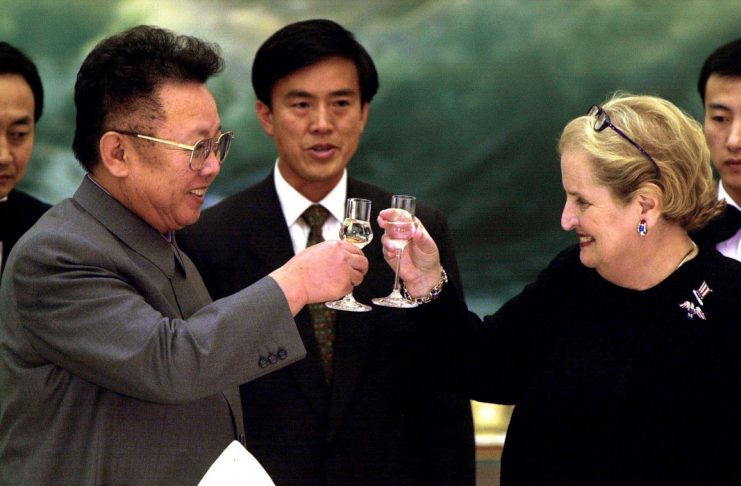In the category of nothing ever changes… Secretary of State Madeleine Albright concludes a two-day visit to Pyongyang, North Korea, meeting with Kim Jong Il, the father of Kim Jong Un. During the visit, Kim tells her that North Korea would not further test its Taepo Dong-1 long-range missile. In addition to discussing Pyongyang’s indigenous missile production, the talks cover North Korean missile technology exports, and greater nuclear transparency.
On the agenda also are the carrot of the normalization of relations and a possible trip by President Bill Clinton to Pyongyang before he leaves office.
In the final presidential debate of the 2020 election season, former Vice President Joe Biden and President Trump traded barbs over North Korea, Biden criticizing Trump for being too chummy with Kim. Trump shot back that the Obama administration had watched North Korea develop its nuclear weapons and missiles without doing much, failing as well to secure a meeting.
Biden shot back: “We had a good relationship with Hitler before he, in fact, invaded the rest of Europe. The reason [Kim] wouldn’t meet with President Obama is because [Obama] said we’re going to talk about denuclearization.”
Biden and company continue to argue that pursuing denuclearization makes no sense because… because it’s not going to happen. “What has he done?” Biden said of Trump. “He’s legitimized North Korea…” And yet that’s been the American endeavor for decades, and not only that, but backwater North Korea has learned that nuclear weapons earn it a place in American foreign policy—as much an incentive as any other to be a nuclear power.
As for the connection to 9/11, the attacks completely took the American eye off the peninsula and North Korea went on to test its first nuclear device on October 9, 2006, while the Bush administration was amidst the worst phase of violence in Iraq and still aggressively pursuing the war against al Qaeda and the Taliban.
